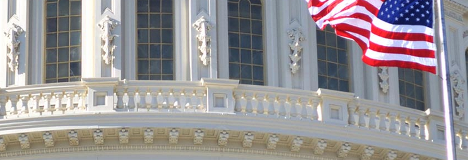
URGE CONGRESS TO ADD THE FOLLOWING PROVISIONS TO THE NEXT PHASE OF COVID-19 RELIEF LEGISLATION
As Congress looks to its next legislative package to help our country deal with this extraordinary crisis, we ask you to urge your members of Congress to include the following recommendations aimed at assisting dental practices, dentists, their staff, and patients:
Allow small businesses increased flexibility within the Paycheck Protection Program (PPP) for which they seek forgiveness for the PPP loans. This will allow small businesses to make more appropriate decisions about staffing and payroll based on when they plan to fully reopen.
Ensure adequate oversight over the distribution and loan forgiveness provisions in the CARES Act for PPP loans. This will guarantee that only those small businesses that were economically distressed as a result of the pandemic receive the funds and forgiveness.
Intensify the production of personal protective equipment (PPE) and focus its distribution to health care providers, including dentists, who are treating emergency cases or near emergency cases now and in the future without an adequate supply of N95 masks and face shields. This will help the dental team to continue to practice in a safe environment for themselves and their patients.
Provide tax credits or allow PPP loan funds to be used for the purchase of additional PPE and safety improvements to the office. This will assist financially stressed practices in providing an additional layer of safety and protection.
Extend the Department of Health and Human Services’ discretionary authority during public health emergencies to provide targeted liability protections for providers who administer FDA-authorized COVID-19 diagnostic tests within their scope of practice until the end of 2020. This will expand the nation’s capacity to screen patients for COVID-19 outside of already burdened hospital emergency departments.
Permit 501(c) (6) organizations to utilize the PPP loan program. This will ensure that non-profit medical and dental associations can continue to serve as a trusted resource for their health care professionals and patients.
While many challenges persist, it is critical to meet these challenges with a long-term strategy that includes planning for a post-pandemic future. Because conditions regarding virus transmission vary greatly across the U.S., many state and local governments are considering plans for a multi-phased reopening starting with essential businesses, including dental practices. The ADA’s current recommendation urged dentists to remain closed to all except urgent and emergency procedures until April 30, though state and local mandates take precedence.

